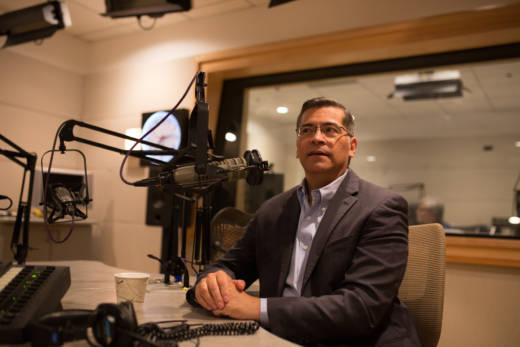California Attorney General Xavier Becerra was more than willing to comply when local officials asked his office to investigate the fatal police shooting of Stephon Clark by Sacramento police. But he told KQED this week that it's not realistic to expect the attorney general to probe every single officer-involved shooting in the state.
And if state law were to change to take that power away from local district attorneys and give it to the California attorney general, Becerra said that responsibility would need to come with significant resources.
"There are 58 counties in the state of California," he said in an interview with KQED. "We don't have the resources to just say, 'We'll take on every case.' I mean, we can have that discussion. But what I would say is if you want to build trust and confidence, you've got to do it the right way ... you can't do it on the cheap."
Last year, Assemblyman Kevin McCarty, D-Sacramento, authored a bill that, in its original form, would have required Becerra's office to investigate all officer involved shootings if lawmakers provided the funds for the attorney general's investigations.
Becerra backed the bill after it was scaled back to only require a review of 2015 and 2016 shootings, but it still failed after staunch opposition from law enforcement.

